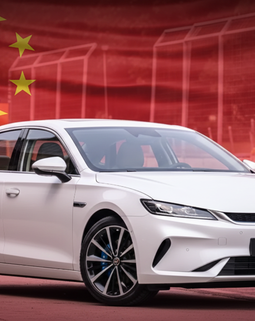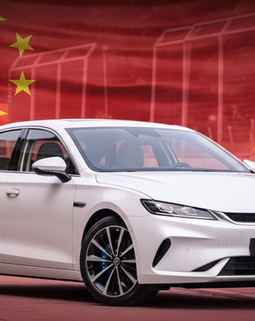Thailand is a significant center for automotive manufacturers in the Association of Southeast Asian Nations (ASEAN), a rapidly growing industrial market. The nation has transformed over the last fifty years from such an automobile component manufacturer to a leading automobile production and export center.
Thailand is the sixth-biggest manufacturer of commercial automobiles worldwide, the biggest in ASEAN, and the 13th-largest exporter of automotive parts, with shipments going to more than 100 nations. Thailand wants to be one of the high competitors in the worldwide automobile sector by 2020 by producing over 3500000 automobiles.
Thailand's automobile industry benefits from a strong outside OEM (original equipment manufacturer) rivalry and a wide network of ancillary businesses. Auto part suppliers are establishing research and development (R&D) departments to better serve their clients as the nation's manufacturing economy is expanding.
Japanese manufacturers control the Thai automobile industry and have made Thailand their major production hub for one-ton pick-up vehicles and environmentally friendly vehicles. As producers of huge, luxurious cars, Americans and Europeans are gathering momentum. Thailand's economic policies are one of the main elements that provide the country's automotive market an edge over its competitors.
The Thai state significantly assists in tax and non-tax benefits to promote foreign investment into the sector. The following are a few general advantages offered to international investors.
Freedom from corporate income tax (CIT) for a maximum of eight years; Duty-free imports of equipment and natural resources needed to make export products; Permits to Employ Qualified Labor and Experts in Investor Encouraged Activities; Permits to Own Land; and Permits to Withdraw or Remit International Currency. Businesses that invest in the planetary system automobile regions in Pathum Thani, Thailand, Ratcha, Prachin Buri, Chonburi, and Rayong are entitled to additional incentives.
Among these is the possibility of expanding the CIT dispensation to 10-15 years, individual income tax for Thai and international professionals, and the opportunity to obtain a perpetual resident visa. Lowered CIT, or 50% of the standard rate, is available for five years in addition to the tax-exempt time frame of up to eight under the overall BOI comprehensive development plan. An equipment import duty waiver is available for operations in HEV.
On the other hand, hydrogen-powered buses qualify for CIT concessions of three years and tariff concessions for imported equipment. The requirements for the manufacture of a crucial HEV component, as well as its maximum duration, are the same as those for PHEVs.
Additionally, the government has proposed revisions to the sales tax rate to promote EVs. The excise duty on electric vehicles was decreased from 10% to 2%. Depending on their pollution levels, hybrid and plug-in hybrid electric vehicle tax brackets have been cut for passenger vehicles with CO2 emissions under 100 g/km.
The five-year clamp term for automobiles purchased through the first-time automobile purchaser program expired in 2017. New models from international manufacturers have been introduced, along with increasing public funding, which has improved the prospects for the local market. With the first-time buyer program ending, there will be approximately 14 million out-of-warranty commercial vehicles in Thailand by 2020, with more than 5 million cars being between 3 and 8 years old. This will present a huge potential for the nation's automakers.





